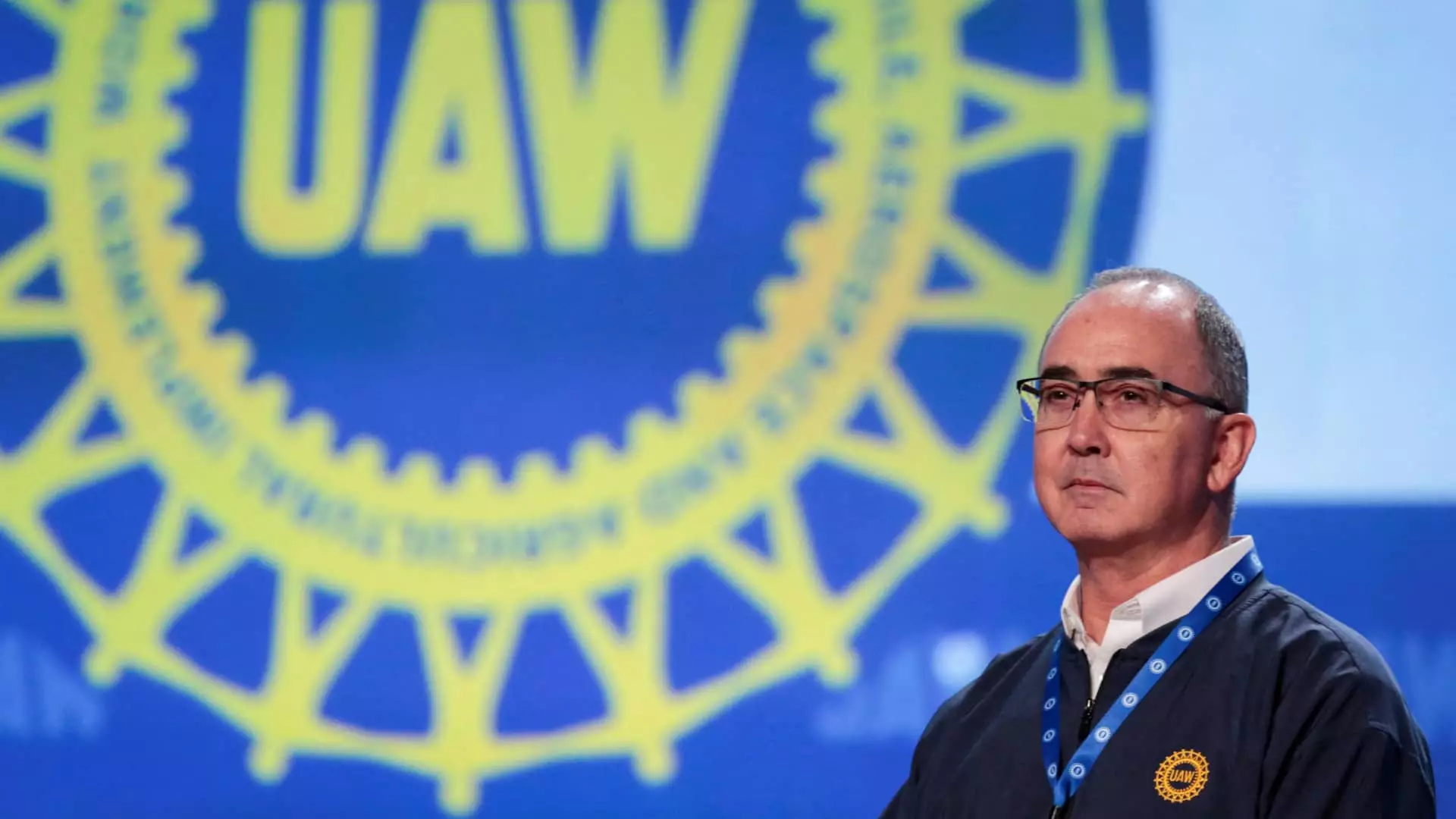United Auto Workers President Shawn Fain’s recent video accusing Stellantis CEO Carlos Tavares of price gouging consumers and failing to uphold parts of the union’s labor contract with the automaker has caused quite a stir in the automotive industry. While it is not uncommon for labor unions and corporate executives to clash over issues such as job cuts, executive pay, and adherence to collective bargaining agreements, Fain’s comments in the video take the accusations against Tavares to a new level.
Fain’s bold assertion that “Sales are down, profits are down, and CEO pay is way, way up” paints a grim picture of Stellantis under Tavares’ leadership. While it is true that the auto industry has faced challenges in recent years, with declining sales and changing consumer preferences, Fain’s direct attack on Tavares’ management style and business strategies raises serious questions about the company’s direction.
It is notable that spokespeople for both the union and the automaker did not immediately respond to Fain’s accusations. This silence may be interpreted in different ways – either as a sign of reluctance to engage in a public feud or as a lack of justification for the allegations. However, Tavares’ recent criticism of the UAW-Stellantis workforce and the company’s cost-cutting measures suggest that there is merit to Fain’s claims of discontent among workers and questionable management decisions.
Tavares’ ambitious “Dare Forward 2030” plan to increase profits and double revenue by 2030 has been the driving force behind significant cost-saving measures, including headcount reductions and operational restructuring. While such initiatives are common in the business world, the extent of Stellantis’ workforce reductions and the alleged negative impact on plant performance raise concerns about the long-term sustainability of these strategies.
The public exchange of accusations between Fain and Tavares has the potential to damage Stellantis’ reputation and erode trust among stakeholders, including employees, customers, and investors. In an industry as competitive and fast-paced as automotive manufacturing, maintaining a positive public image and fostering strong labor relations are essential for long-term success.
The accusations of price gouging and labor contract violations, if proven to be true, could result in regulatory scrutiny and legal challenges for Stellantis. Additionally, the negative publicity surrounding the company’s operations and management practices may deter potential partners and investors from engaging with Stellantis in the future.
While it is imperative to hold corporate leaders accountable for their actions and decisions, it is equally important to ensure that accusations are based on factual evidence and not solely on personal animosity or bias. The ongoing conflict between the UAW and Stellantis highlights the complexities of labor-management relations and the challenges of navigating a rapidly evolving industry landscape.
As stakeholders continue to monitor developments between Fain and Tavares, it is crucial for both parties to engage in constructive dialogue and find common ground to address the underlying issues affecting Stellantis’ performance and reputation. Only through open communication, transparency, and a commitment to fair labor practices can the company and its workforce overcome the current challenges and build a sustainable future for all.


Leave a Reply